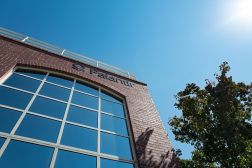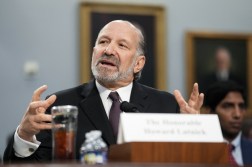Science and tech face cultural roadblocks at State
More than 15 years after the State Department established a science and technology office in its Washington, D.C., headquarters to help diplomats better understand and engage a rapidly changing high-tech world, many career foreign service officers remain indifferent to S&T-related posts because they are not considered easy tickets to promotions and high-profile embassy assignments.
That was the conclusion of a new study released Tuesday by the National Research Council. In the 175-page report, “Diplomacy for the 21st Century: Embedding a Culture of Science and Technology Throughout the Department of State,” a 20-member committee of former diplomats and private sector experts concluded that while the Office of the Science and Technology Adviser has made important contributions to the department’s global mission, the department has failed to integrate technology expertise into its culture.
“A cultural change within the department is essential so that S&T competence will be considered equal in importance to language fluency and area expertise as a critical aspect of diplomacy that will be practiced throughout the world during the 21st century,” the report states.
In Washington, for example, some foreign service officers with S&T experience and interests favored assignments in the regional bureaus, which are focal points for political and economic developments. “Such assignments often led to favorable embassy postings with bright prospects for promotion, whereas S&T-oriented functional bureaus … did not have comparable influence over future assignments of FSOs serving in their bureaus,” the report concluded.
The study recommended that the State Department accelerate its efforts to instill an appreciation of the significance of S&T to the department’s mission around the world. “It needs to support more fully our front-line diplomats with strong contingents of civil servants who are up-to-date on the technical dimensions of numerous issues on the department’s agenda,” the report states. The report also called for an increase in the number of foreign service officers with technical backgrounds and increased training for all officers to prepare them for handling science and technology issues.
In its study, the committee made clear the importance of developing S&T knowledge. According to the report, the number of mobile phone subscribers will soon exceed 5 billion, with smartphone users surging to 2.4 billion. By 2030, the demand for food will increase by 35 percent over the demand in 2014 and for energy by 50 percent, with nearly half of the global population living in areas of severe water stress. It is critical, according to the report, that foreign service officers understand the implications — positive and negative — of rapid changes in the environment and how technology can have an impact.
But that is not happening in enough areas throughout the State Department, according to the report. Of particular concern to members of the committee were comments by officials of the Department of Defense that State does not give enough attention to discussions led by the White House Office of Science and Technology Policy concerning advanced technologies that are having or will have significant international impacts.
“While the department has taken important steps in strengthening S&T capabilities in Washington, a ‘tale of two States’ emerges when assessing activities at U.S. embassies abroad,” the report states. “Progress at the embassies in embracing S&T as a key component of diplomacy has lagged seriously behind.”
In fact, the committee found that the number of science counselors at embassies and missions declined from 10 in 1999 — the year the department formed the science and technology adviser position — to just six in 2015.






